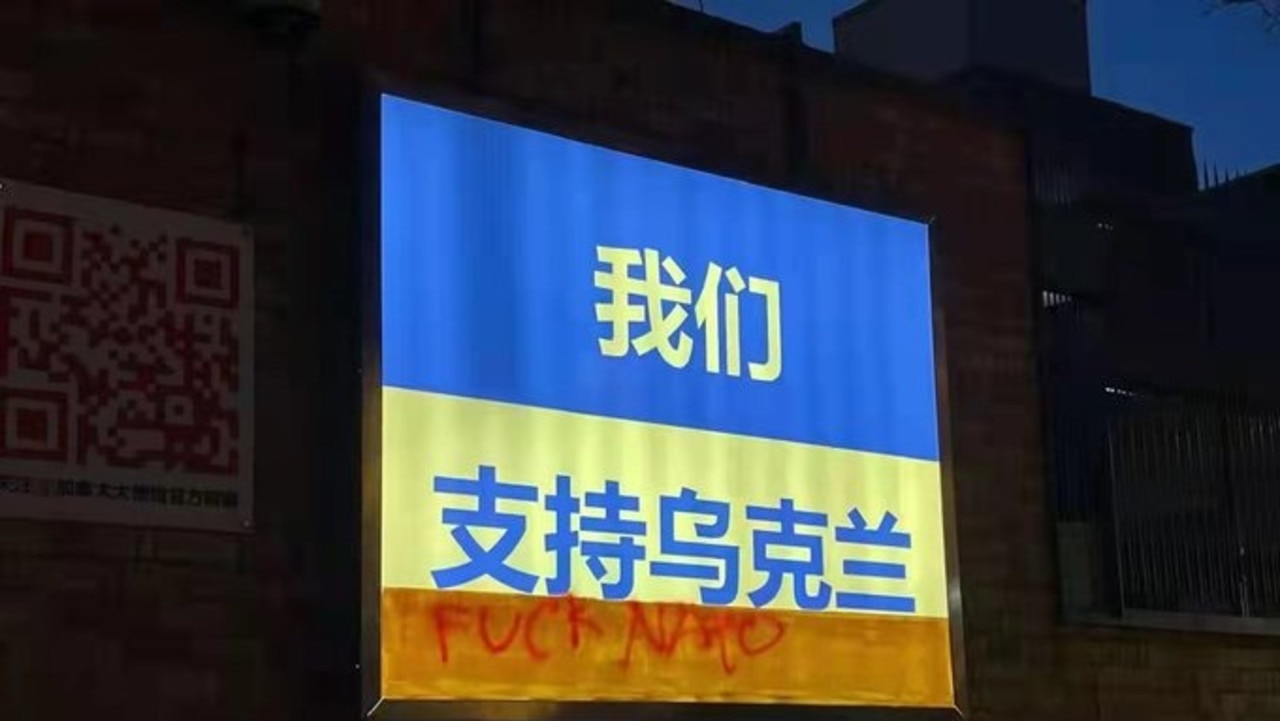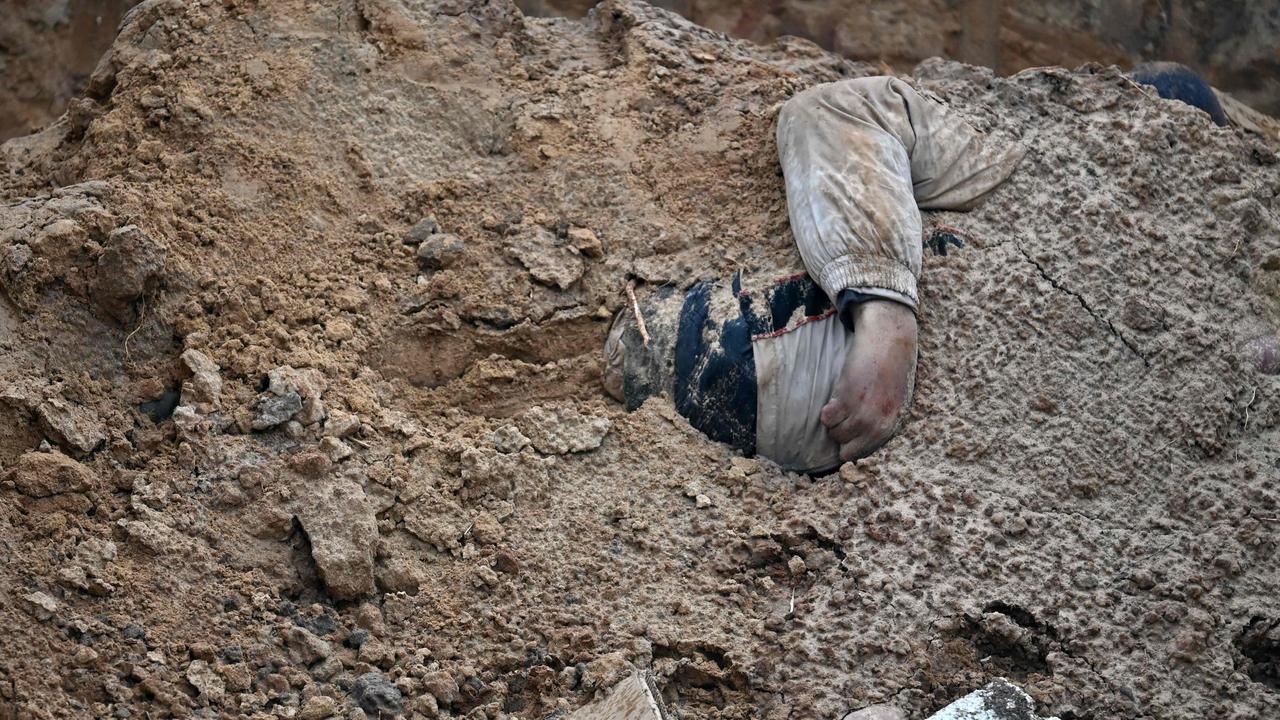Chinese propaganda about Russia invasion infiltrates Australia
Chinese propaganda that lionises Russia in its invasion of Ukraine has filtered into the Chinese-Australian diaspora community.
A terrifying WeChat group between Chinese-Australians reveals how propaganda about the Russian invasion of Ukraine is filtering into communities in Australia.
Screenshots show what is purported to be content from Chinese outlets that lionise Russia, posted to Twitter by Yang Han, who describes himself as a Sydney-based former Chinese diplomat.

“They share videos from Chinese media sources about the prowess of Russia precision attacks and the decency of Russian tanks letting other vehicles pass at the Red Army’s own risk,” Yang wrote.
“They marvel at Russia’s propaganda skills with a video about Russian soldiers sharing food with Ukrainian children or Ukrainian POWs reflecting on their sins at a memorial for children killed by the evil Ukrainian Government.”
Many of the videos have been disproven or debunked.
They share video from Chinese media sources about the prowess of Russia precision attack and the decency of Russian tanks letting other vehicles pass at the Red Army’s own risk pic.twitter.com/5AvxPtbjJ7
— æ¨æ¶µ Han Yang (@polijunkie_aus) March 10, 2022
One of the messages Yang featured is an interview of Tulsi Gabbard by Tucker Carlson on the US cable network Fox News.
In the interview, both Carlson and Gabbard borrowed unsubstantiated ideas from Russian propaganda and claimed the Biden administration is funding “secret bio labs in Ukraine”.
Gabbard was a 2020 Democratic presidential contender who has since left Congress and embraced more radical, conspiracy-adjacent ideas associated with the Trump wing of the Republican Party.
Her comments in the interview drew condemnation from across the political spectrum, including GOP Senator Mitt Romney who accused Ms Gabbard of “parroting false Russian propaganda”.
On the other side of the information divide, Russia has faced growing calls for a war crimes probe, including by the US government and the UN Secretary General, after a Russian retreat revealed scenes of apparent civilian killing in the Ukrainian town of Bucha.

The ideas captured in the WeChat screenshots are reflective of the unofficial stance of the Chinese government. In its official pronouncements, the Chinese government acts as an arms-length onlooker to Russia’s invasion of Ukraine, deliberately choosing anodyne language in its communications.
China’s envoy to the UN, Zhang Jun, has so far refused to lay blame or assign agency to Russia for the invasion.
“We welcome the two sides to stick to the general direction of peace negotiations, overcome difficulties and differences, and continue to build conditions for a comprehensive settlement of the crisis,” he told the UN Security Council last week. “On the issue of Ukraine, China does not seek geopolitical self interest. It is not our mindset to watch indifferently from the side line, let alone do anything to add fuel to the fire.”

However, observers have noted that the government has spun up an unofficial campaign to reframe the invasion, often focusing on Russian grievances with the EU, the US, and NATO.
Chinese universities have organised classes to teach students the “correct understanding” of the invasion and party mouthpieces have published editorials blaming the US for the invasion.
The tenacity of the link between Chinese diaspora communities and propaganda has been well noted. A 2020 report from the Australian Strategic Policy Institute said that this was driven largely by WeChat.
“Persistent efforts by the Chinese Communist Party to engage with and influence Chinese language media in Australia far outmatch the Australian Government’s work in the same space,” it said.
“WeChat raises concerns because of its record of censorship, information control and surveillance, which align with Beijing’s objectives. Media outlets on WeChat face tight restrictions that facilitate CCP influence by pushing the vast majority of news accounts targeting Australian audiences to register in China.
“Networks and information sharing within the app are opaque, contributing to the spread of disinformation.”





